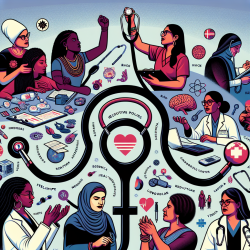Understanding the Resistance: Indigenous Women and Colonial Policies
The research article "Indigenous Women’s Resistance of Colonial Policies, Practices, and Reproductive Coercion" offers a compelling insight into the ongoing struggles faced by Indigenous women in healthcare settings. This study, conducted across urban centers in Canada, highlights the reproductive coercion Indigenous women face, including forced sterilizations and pressures to use long-term contraceptives. The study foregrounds Indigenous women's resistance strategies, such as refusal, negotiation, and community knowledge sharing, which are crucial in asserting their rights within these coercive environments.
Key Findings and Implications for Practitioners
Practitioners working with Indigenous populations must understand the colonial contexts that shape these women's experiences. The study reveals a pattern of coercive practices by healthcare providers, emphasizing the need for practitioners to adopt culturally safe and respectful approaches. Here are some key takeaways for practitioners:
- Recognize and Address Colonial Narratives: Understand how colonial narratives influence healthcare practices and work towards dismantling these biases.
- Promote Informed Consent: Ensure that all reproductive healthcare decisions are made with free, full, and informed consent, respecting the patient's autonomy.
- Support Indigenous Knowledge and Practices: Engage with Indigenous communities to incorporate traditional knowledge and practices into healthcare delivery.
Encouraging Further Research and Action
While this study provides valuable insights, there is a need for further research to explore the broader implications of reproductive coercion and resistance strategies. Practitioners are encouraged to engage in collaborative research with Indigenous communities to develop more effective and culturally relevant healthcare practices.
Moreover, institutions must implement structural changes to foster a healthcare environment that respects Indigenous women's rights and supports their reproductive decision-making with dignity and safety.
To read the original research paper, please follow this link: Indigenous Women’s Resistance of Colonial Policies, Practices, and Reproductive Coercion.










